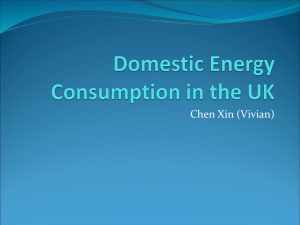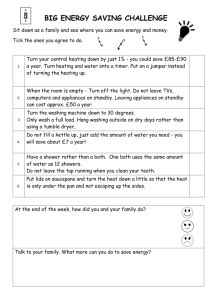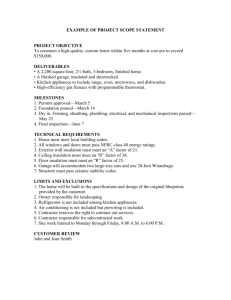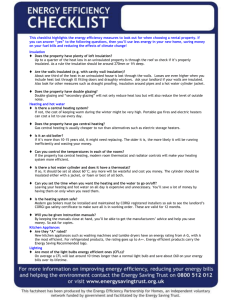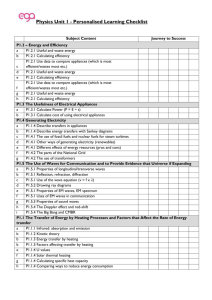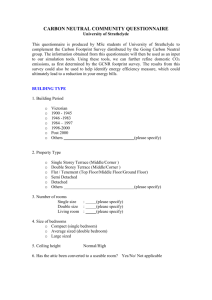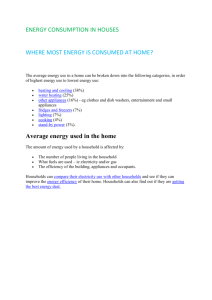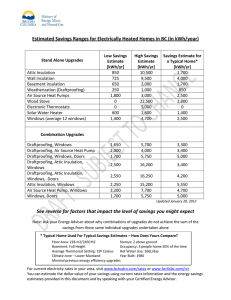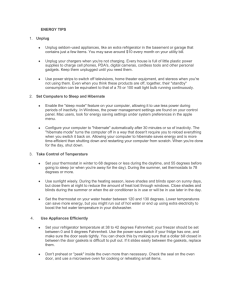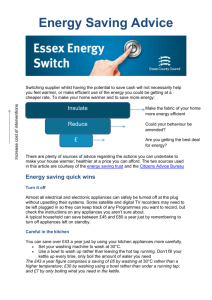Energy saving myths
advertisement
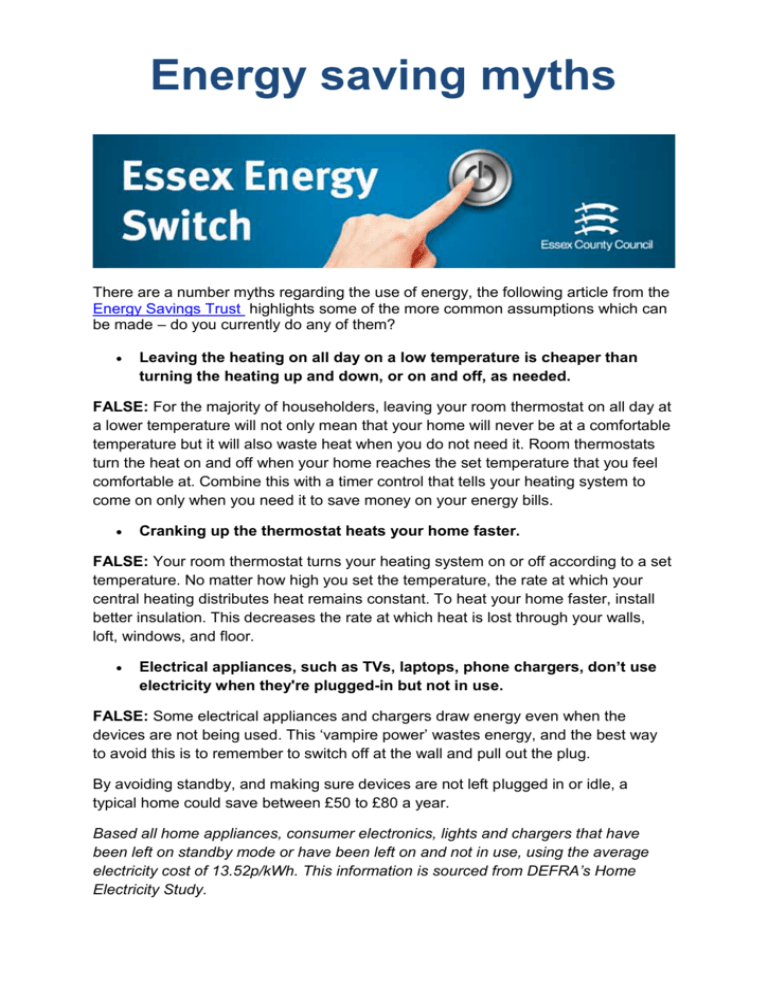
Energy saving myths There are a number myths regarding the use of energy, the following article from the Energy Savings Trust highlights some of the more common assumptions which can be made – do you currently do any of them? Leaving the heating on all day on a low temperature is cheaper than turning the heating up and down, or on and off, as needed. FALSE: For the majority of householders, leaving your room thermostat on all day at a lower temperature will not only mean that your home will never be at a comfortable temperature but it will also waste heat when you do not need it. Room thermostats turn the heat on and off when your home reaches the set temperature that you feel comfortable at. Combine this with a timer control that tells your heating system to come on only when you need it to save money on your energy bills. Cranking up the thermostat heats your home faster. FALSE: Your room thermostat turns your heating system on or off according to a set temperature. No matter how high you set the temperature, the rate at which your central heating distributes heat remains constant. To heat your home faster, install better insulation. This decreases the rate at which heat is lost through your walls, loft, windows, and floor. Electrical appliances, such as TVs, laptops, phone chargers, don’t use electricity when they're plugged-in but not in use. FALSE: Some electrical appliances and chargers draw energy even when the devices are not being used. This ‘vampire power’ wastes energy, and the best way to avoid this is to remember to switch off at the wall and pull out the plug. By avoiding standby, and making sure devices are not left plugged in or idle, a typical home could save between £50 to £80 a year. Based all home appliances, consumer electronics, lights and chargers that have been left on standby mode or have been left on and not in use, using the average electricity cost of 13.52p/kWh. This information is sourced from DEFRA’s Home Electricity Study. It is cheaper to run appliances, such as washing machines, at night than during the day This may be true, but not for most of us. While some households in the UK are on tariffs that vary depending on the time of day, such as Economy 7, the majority of customers pay the same rate at all times of day and night. However, if you know you are already on an Economy tariff, or are considering switching to one, then running appliances during off-peak periods will be cheaper. With traditional light-bulbs fittings, you cannot do a straightforward swap with energy saving bulbs and LED light bulbs. FALSE: Energy saving and LED light bulbs come in all shapes and sizes and can now be fitted in down-lighters, free-standing lamps and traditional pendants. Putting plastic tape and a layer of cling-film around draughty windows is better at keeping heat in rather than draught excluders or double glazing. FALSE: Although physically blocking gaps around your windows with cling film or plastic tape may stop draughts and reduce heat loss, this will not be as effective as draught excluders or double glazing. These more permanent measures reduce heat loss more effectively, keeping you warmer and saving money on your heating bills. Cavity wall insulation causes damp in the home. FALSE: In most cases, cavity wall insulation is likely to alleviate and not exacerbate damp in a home. A combination of proper insulation, adequate ventilation and balanced heating in a home will help avoid cold spots and moisture from condensing on your walls. Assessors should be able to advise you as to whether your home is suitable for insulation and any potential risk from damp. Solar panels don’t generate electricity on a cloudy day. FALSE: Whilst solar panels will work most effectively in bright sunlight, they nonetheless continue to collect energy from diffuse light even on a cloudy day. Summer months are the most productive as there are longer daylight hours than in winter. When using a desktop computer, screensavers save energy. FALSE: Because your screen remains on, screensavers are basically another programme which consumes energy like any other. While computers have timed sleep settings which do use less energy, switching off your monitor or even your whole computer when taking breaks is the most effective way to stop energy being wasted. On average desktop computers cost around £24 a year to run. Based on all home appliances, consumer electronics, lights and chargers that have been left on standby mode or have been left on and not in use, using the average electricity cost of 13.52p/kWh. It is difficult and a hassle to switch energy suppliers. FALSE: There are a number of energy price comparison companies where you can find the cheapest tariff for your area by checking online or by telephone. Once you have filled in the application with your main details, which typically takes around half an hour, the energy provider will sort the switch for you. Finding the deal that’s best for you, and switching energy supplier, can be a great way to reduce your energy bills.
